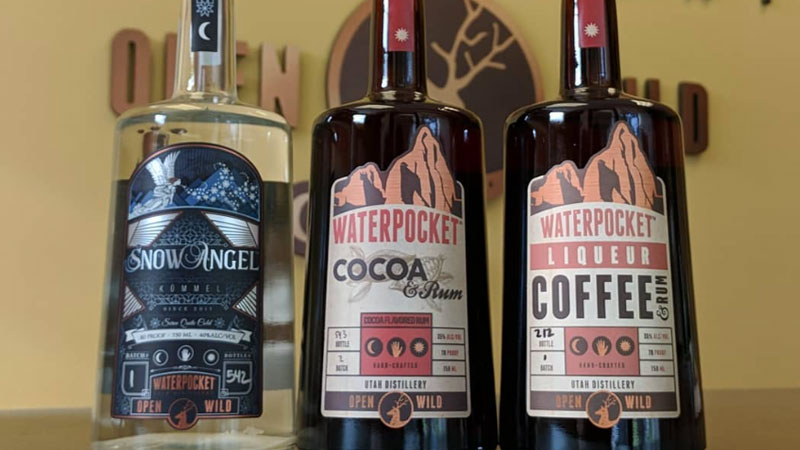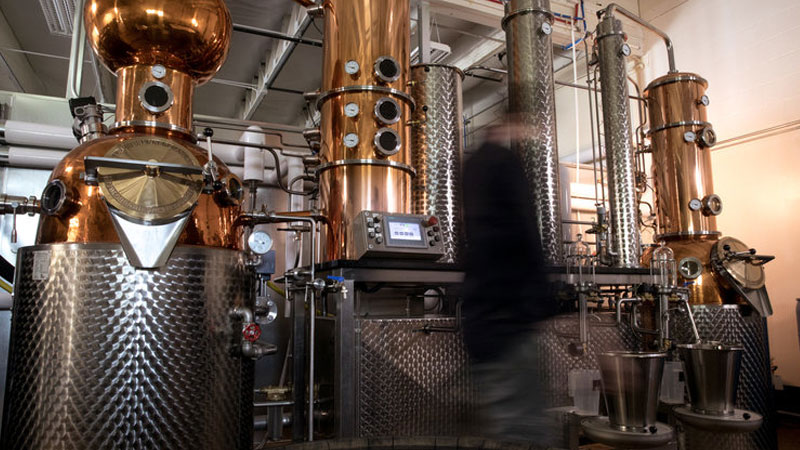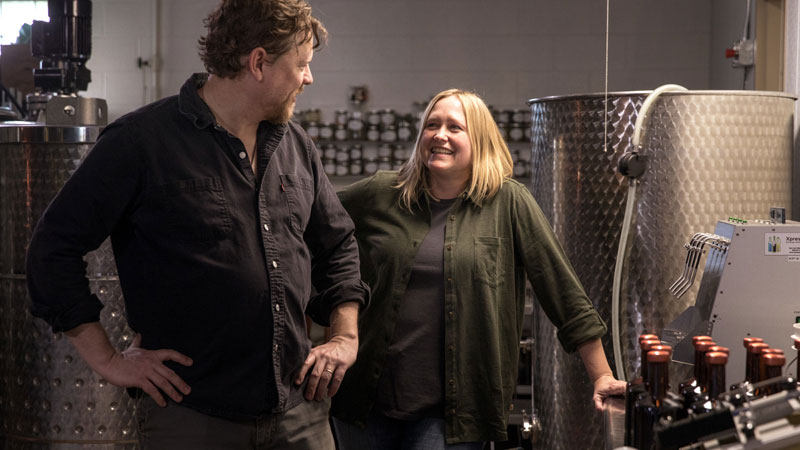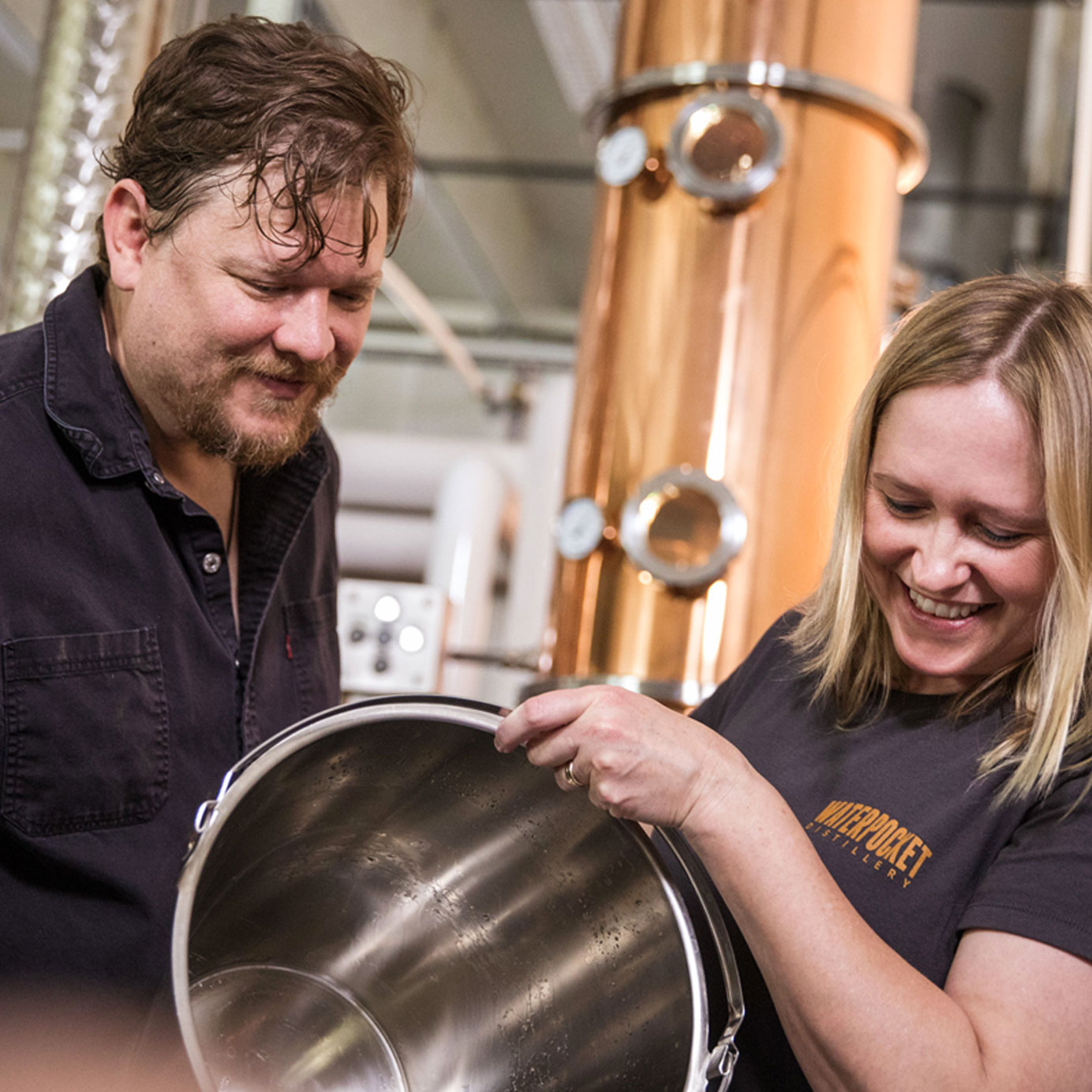“I don’t want another drink.”
That’s not a normal thought for me. I’ve written about beer for years. Even weirder, I was thinking that in Salt Lake City, Utah.
Known for its religious population and gorgeous scenery, Utah also has the strictest alcohol laws in the United States. Part of me believed the entire state was dry until I spent a couple days drinking my way through Salt Lake City.
It’s not the place you think it is. There’s a thriving drinking culture: a growing beer scene that includes a brewery brought back from the dead; cocktail bars like The Bar-X (co-owned by “Modern Family” dad Ty Burrell and his real-life family!); and moody spots to get a stiff drink and a hearty meal, like Bodega.
By the time I wandered through the production facility of Waterpocket Distillery, I knew Salt Lake City wasn’t the dry hellscape I had imagined. Waterpocket co-owner Alan Scott knows his stuff and speaks with a clear passion for producing and drinking spirits. In the tasting room, he poured wildly unique spirits, many of which are recreations of liqueurs from distilleries that no longer exist.
Alan runs the operation with his co-owner and wife, Julia Scott. Their passion for unearthing rare spirits and commitment to doing it in SLC speaks to the vibrant, new drinking culture happening across the city. It’s the modern embodiment of an attitude held by generations of Americans: Move out West, make a new life for yourself, and transform your city and surroundings in the process. The Salt Lake City of the past was very different from what it is today, and that change is due in part to people like the Scotts.

Midwestern natives, Alan and Julia Scott met at the University of Kansas. After a few years, they fully committed to both one another (as in, they got married) and a nomadic lifestyle (as in, they lived in Spain, Slovakia, Hungary, Austria, and China).
“I was in oil and gas, and we’d travel to places with major refineries,” Julia says. “In Europe, there’s one next to every major city.” Along the way, they sampled locally made liqueurs in places like southern Germany and Vienna.
They settled in Utah, in part because Julia enrolled in the MBA program at the University of Utah, but also because they were smitten with the landscape.
“We found it’s hard to beat Utah for a lot of reasons: the desert, mountains, national parks, low humidity, and the cool summer evenings,” Alan says. It’s also a place where a distillery can open and flourish.
In 2009, Gov. Jon Huntsman Jr., a Mormon, not only removed the restriction that you needed to be a member to drink in a bar, but he also made it possible for distilleries like Utah-based High West to open.
“It’s certainly not the worst place to own a distillery,” Alan says. Even though many Utahns are Mormons who abstain from alcohol, there’s still a market. “There’s plenty of people [here] who drink… Since I moved to Utah in 2000, there’s so many more restaurants and places to get a decent cocktail. Grain-to-glass and farm-to-table concepts are taking root here.”

Opening a distillery in a state where many residents don’t drink seems like a tall task. But Alan and Julia were destined to be in the booze business.
“We’ve both had a fascination with distillation and fermentation for a long time,” Alan says. “I’ve been homebrewing, home winemaking, and playing with fermentation since college, for about 20 years.”
Julia holds a degree in chemical engineering, a PhD in Biochemistry, and an MBA. Chemical engineering comes in handy during distillation, and the fermentation process is something anyone with a biochem background knows well.
“He and I do a lot of the production work together,” Julia says. She maintains a “day job,” and Alan works for Waterpocket full-time. “I’m the weekend help,” she says. “We try to do the distillations and mashes on the weekends because those are a lot of work, and it’s easier if there are two people to do everything.”
Julia also handles all the paperwork, including making sure the company’s complying with local and federal regulations. Alan takes the lead in tasting the liqueurs and fine-tuning flavors, though both contribute to product development.
“Together we make a pretty decent team,” Alan says.
Rum lovers will find two bottles especially pleasing from the Waterpocket team, including a smooth, chocolatey Cocoa & Rum, and a Coffee & Rum using beans roasted in-house. The rum in both bottles is sourced with care, using blackstrap molasses and turbinado sugar from a Louisiana organic farm.
Their best seller is Robbers Roost, a light whiskey. “In our early years, [the whiskey] gave us breathing room [financially] before we introduced the more unusual products onto the market,” Alan says.

Oread, a bottle from their Long Lost series, is a modern reinterpretation of a historic liqueur from a now-defunct distillery in Danzig (currently Gdansk, Poland). Alan pored through ancient distiller’s books that had never been translated or scanned. He got advice from Stephen Gould of Golden Moon Distillery, a botanical spirits history nerd himself. He also read tomes on Google Books, dissecting ingredient lists of liqueurs written in German, Italian, or Dutch. Many countries would produce a given liqueur in a specific way, just as Alan would make his own version.
After 30 trials in the lab tasting and re-tasting Oread, the final product is reminiscent of sage, sweet orange peel, star anise (lots of star anise!) and other botanicals. “People either love it or hate it,” Anna says.
The distillery’s next Long Lost release will likely be Eau de Melissa, made with fresh lemon balm and hyssop. Waterpocket also produces a kümmel and the amaro Notom — not surprisingly, from a forgotten recipe with Czech and German roots.
Despite the fact that their bottles are currently only available in Utah, Waterpocket has found the drinking public receptive to its offbeat booze.
“People are people — it doesn’t matter if you’re in Utah,” Alan says. “Taste buds are taste buds. I think craft distilling is about the excitement of tasting something new and different.” It’s a modern trend, and a timeless idea.
